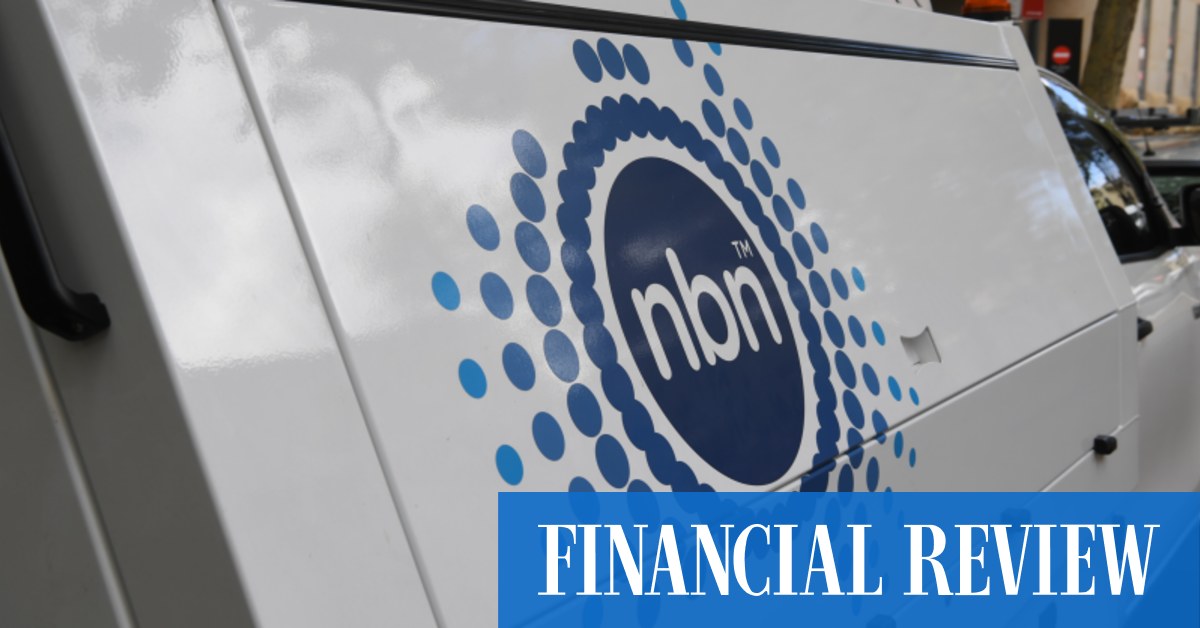“If NBN and industry continue to work constructively, Optus is confident we can provide Australian customers with the outcomes they deserve,” he said.
TPG was, however, more critical. While NBN Co has committed to dropping the excess capacity charges on slower entry-level plans – it had already said it would cut them on higher speed plans – by 2026, a TPG spokesman said the network should scrap these fees now if it is serious.
“We remain concerned NBN is focussed on providing cost savings for high-speed users, while pushing price increases across most of its low-speed services,” the spokesman said.
“With cost-of-living pressures continuing to hurt many Australians, it is essential NBN Co continues to support affordable internet access for low-speed users.”
Telstra said the revised proposal included “some positive steps in the right direction” but highlighted there needed to be more attention on service quality.
“We look forward to working constructively with NBN Co and the ACCC in forthcoming workshops to work that through,” a Telstra spokesman said.
“Our ambition through the process will continue to be ensuring the wholesale terms deliver better outcomes for our customers, sustainable industry economics and increased use of an important national asset.”
The details come via NBN Co’s revised pricing submission to the Australian Competition and Consumer Commission after the spectacular withdrawal of its previous controversial proposal because of the intervention of the new Labor government.
NBN will stay in public hands for the “foreseeable future”, Communications Minister Michelle Rowland said last month, putting off a potential future privatization that was envisaged when the Rudd government set up the $50 billion infrastructure project.
Returns to be lower, but no hit to budget yet
NBN Co thinks the changes will have big financial consequences for it over the term of the new pricing construct yet believes, with privatization off the table, it will be able to weather the toll and still meet the core funding aims of a government-owned entity .
Ms Rowland said the move away from “unrealistic revenue expectations and reflected a view to privatization” had allowed NBN Co to “focus on delivering improvements to the network” and “keeping prices affordable”.
“[This process] provides the best pathway for delivering regulatory certainty, affordable prices and the continued investment required to improve the network,” she said.
This initial discussion paper, which will be subject to further regulatory and industry consultation later this month, includes new powers for the ACCC to reset the NBN’s revenue and pricing framework from 2032. It includes new caps on the building and infrastructure costs NBN can recover each year too.
The lower expected returns for NBN Co are not expected to have any toll on the federal budget’s bottom line or the $29.5 billion equity value on the government’s balance sheet in the forseeable future, government sources said.
NBN Co does not currently pay dividends and the carrying value of the asset listed in the budget is reviewed annually by the NBN board, the government and independent auditors.
“The government has committed to further investments in the NBN network under the ‘Fixing the NBN’ plan,” a Department of Finance spokesman said earlier.
“The commercial sustainability of NBN Co is central to our ability to improve the network and provide better services and pricing to Australian consumers.
“The value of NBN Co is established independently of government, in accordance with accounting standards.”
The company will have the right to increase its prices with inflation every year under the proposed plan, but if it forgoes an increase in one year it is unable to catch up with a higher increase in the next.
The proposed annual price increase in line with inflation is lower than a March 2022 proposal by the NBN of the inflation rate plus 3 percentage points.
Regarding wholesale price decreases, NBN Co says it is prepared to drop the capacity charges on all of its slower entry-level plans by 2026. It had already conceded to dropping them on the higher speed tiers.
The company is also willing to progressively reduce excess capacity fees that telcos pay when data use is above the monthly allowance they buy from NBN Co.
